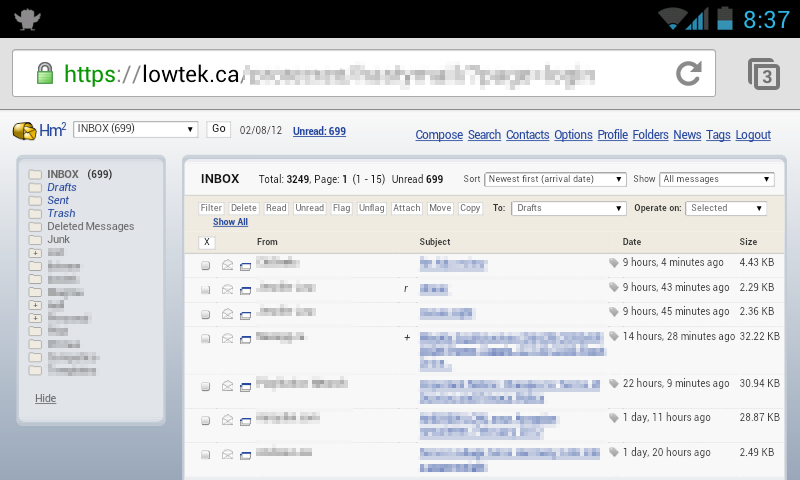There are many different ways to take some video on Ubuntu and convert it to a physical DVD that will play back on most DVD players and while the command line would be fine, it’s certainly nice to see there is at least one option that provides a reasonable GUI and supports the creation of menus.
I tried DeVeDe before coming across Bombono. I was trying to take a number of 15 and 30 minute recorded children’s shows stored as mp4’s and convert them into a playable DVD. For some reason DeVeDe aborted with little to no diagnostic information after a couple of videos, it was easier to move on than mess with it.
Bombono was able to convert all of my videos, but the version available in the Ubuntu repository was older and had some serious issues related to menu editing. It turns out there is a PPA that is current (1.2.1), instructions for installing via the PPA are hosted on the bombono wiki. I expect in future the Ubuntu repository version will catch up and be the easiest way to get this utility, but in the near future I recommend getting it from the PPA.
The PPA install places things in the /opt/bombono-dvd-testing hierarchy, which is fine but it doesn’t provide an easy way to run it. I added a link in /usr/local/bin so that I can launch it from the command line
$sudo ln -s /opt/bombono-dvd-testing/bin/bombono-dvd /usr/local/bin/bombono-dvd
It does appear that there is a .desktop file in /opt/bombono-dvd-testing/share/applications so a little creativity and I’m sure you could easily integrate it into the Ubuntu menu system.
The 1.2.1 version (via the PPA) has quite nice menu editing. I wouldn’t claim this is the same level you’d expect on a Mac, but it very easy to use. One of the more polished utilities I’ve seen on Linux. Menus support background images and buttons that can be stills or motion video clips. I did experience problems trying to use too many motion clips on a single menu (it rendered most of them as stills), it may be possible to work around this by generating the DVD folder then manually adding the appropriate video clips. The alignment and snap to grid tools are handy for making the menu line up.
You of course can choose to create a DVD without a menu. Simply omit any menu and the DVD will play the video when the disk is inserted.
Before you get going with Bombono, make sure you use the Project menu and select Preferences, you’ll want to choose NTSC or PAL as appropriate and choose how many cores for it to use.
The size estimation is terrible, a 4.4GB estimate (with warning it wouldn’t fit) resulted in 3.3GB iso. This is a bit frustrating if you’re trying to maximize the quality of a full length movie on a single layer DVD (then again, if you’re burning a 2hr movie to a single layer DVD you’ve already made a number of compromises). There is an option to create dual layer DVDs, but I didn’t try this out. It appears to create 16:9 animorphic DVDs just fine, but either mixed 4:3 content (or possibly 4:3 content in general) ends up stretched.
I’ll include a reference to the forum, but it does seem fairly quiet there.




